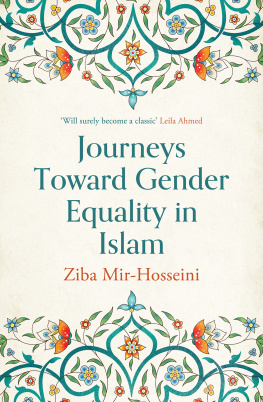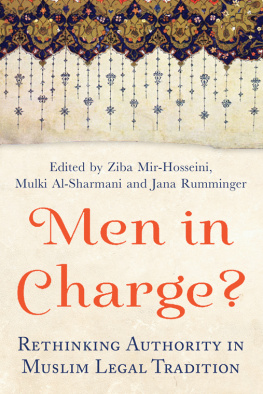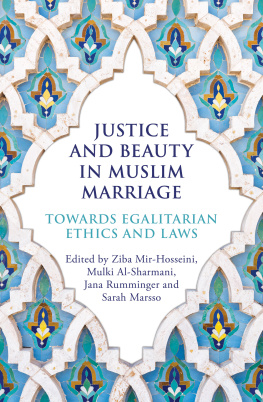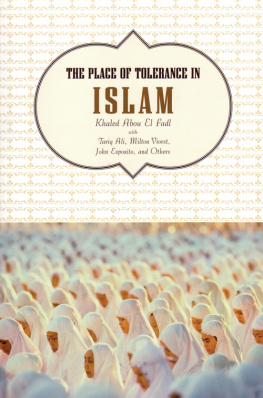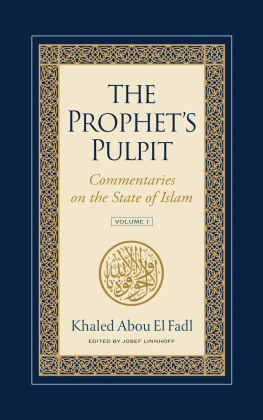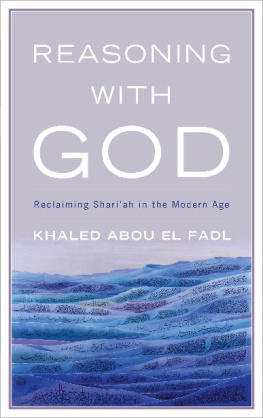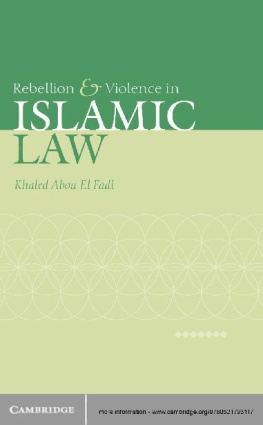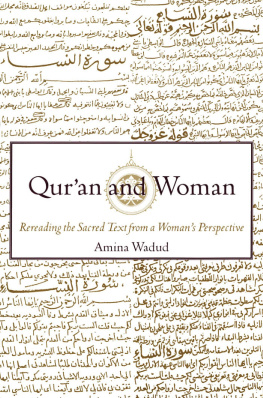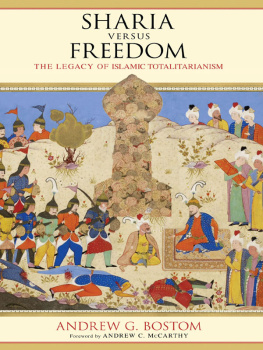Acknowledgements
This book has been in the making since 2009, when I began the conversations without which it would not exist. I am deeply grateful to Abdullahi An-Naim, amina wadud, Asma Lamrabet, Khaled Abou El Fadl, Mohsen Kadivar and Sedigheh Vasmaghi for their willingness to become my interlocutors, in our shared quest for gender equality and justice from within Islamic tradition. Thank you all for your generosity with your time, patience, and trust, and for speaking so honestly and reflectively about your own journeys to knowledge of Islam and its sources. If I have in any way misrepresented your stories and views, please forgive me.
I have the great good fortune to be part of a community of activists and scholars working toward the same ends. My colleagues in Musawah are unfailingly supportive, kind and generous. I owe special thanks to Zainah Anwar, Jana Rumminger, Mulki Al-Sharmani and Sarah Marsso for invaluable comments on the parts of the manuscript that they have read, and to Lena Larsen, Lynn Welchman and Marwa Sharafeldin for their comradeship and support. Homa Hoodfar has long insisted that I write a book such as this, to help make reformist approaches in Islam accessible to a wider audience of non-specialists. Thank you, Homa jan, for your faith in me and for your friendship and encouragement all these years.
My special gratitude goes to Sarah Hobson for her friendship and her encouraging comments on an early draft, and to Muhammad Khalid Masud, who mentored me for many years, sharing his vast insight and knowledge. He is one of the best teachers I have ever had.
In the first decade of the new century I spent four semesters as Hauser Visiting Professor Global Law at New York University; it was during this time, and the year I spent as Fellow of the Wissenschaftskolleg zu Berlin (20045), that I developed the notion of this book. During two more recent semesters at NYU I had two outstanding research assistants Maliheh Zare in 2017 and Shirin Shahidi in 2019 who helped with the transcription and translation of the two conversations conducted in Persian. Shirin also checked all the transcriptions against the recordings, and edited each of them diligently for which I am truly grateful.
An invitation to give the 2020 British Society of Middle Eastern Studies Annual Lecture came as I was putting the final manuscript together, and I am extremely grateful for the opportunity this gave me to share the main ideas in the book and to receive some helpful comments from the organizers and our virtual audience. Thank you to John Chalcraft, Nicola Pratt and Zahra Tizro for making this possible.
Above all, I could not have finished this book without Richard Tappers help; thank you, Richard jan, for patiently reading various drafts, for your wonderful edits that improved the book in ways that were beyond me, and above all for your love and support.
Bibliography
Abd Al Ati, Hammuda, 1997. The Family Structure in Islam . Indianapolis: American Trust Publications.
Abou El Fadl, Khaled, 1997. The Authoritative and the Authoritarian in Islamic Discourses: A Contemporary Case Study , 2nd edition revised and expanded, Austin, TX: Dar Taiba.
Abou El Fadl, Khaled, 2001a. And God Knows the Soldiers: The Authoritative and the Authoritarian in Islamic Discourses , Lanham, MD: University Press of America.
Abou El Fadl, Khaled, 2001b. Speaking in Gods Name: Islamic Law, Authority and Women, Oxford: Oneworld.
Abou El Fadl, Khaled, 2004. Islam and the Challenge of Democracy , Princeton University Press.
Abou El Fadl, Khaled, 2005. Dogs in the Islamic Tradition and Nature, Encyclopaedia of Nature and Religion , New York: Continuum International. https://www.searchforbeauty.org/explore/dogs-in-islam/
Abou El Fadl, Khaled, 2006. The Search for Beauty in Islam: A Conference of the Books , Lanham, MD: Rowman & Littlefield.
Abou El Fadl, Khaled, 2007. The Great Theft: Wrestling Islam from the Extremists , New York: HarperSanFrancisco.
Abou El Fadl, Khaled, 2014. Reasoning with God: Reclaiming Shariah in the Modern Age , Lanham, MD: Rowman & Littlefield.
Abou-Bakr, Omaima (ed.), 2013. Feminist and Islamic Perspectives: New Horizons of Knowledge and Reform , Cairo, Egypt: Women and Memory Forum with the Danish-Egyptian Dialogue Institute and the Danish Center for Research on Women and Gender.
Abou-Bakr, Omaima, 2015. Imperative Legacy of Qiwamah as an Exegetical Construct, in Ziba Mir-Hosseini, Mulki Al-Sharmani & Jana Rumminger (eds), Men in Charge? Rethinking Male Authority in Muslim Legal Tradition , London: Oneworld, pp. 4465.
Abu Zayd, Nasr Hamid, 2006. Reformation of Islamic Thought: A Critical Historical Analysis , Amsterdam University Press.
Abu Zayd, Nasr Hamid, 2011. Toward Understanding the Qurans Worldview: An Autobiographical Reflection, in Gabriel Said Reynolds (ed.), New Perspectives on the Quran: The Quran in its Historical Context , London: Routledge, pp. 4787.
Abu Zayd, Nasr Hamid, 2013. The Status of Women between the Quran and Fiqh , in Ziba Mir-Hosseini, Kari Vogt, Lena Larsen and Christian Moe (eds), Gender Equality in Muslim Family Law: Justice and Ethics in the Islamic Legal Tradition , London: I.B. Tauris, pp. 15368.
Abu-Odeh, Lama, 2004. Modernizing Islamic Law: The Case of Egypt, Vanderbilt Journal of Transnational Law 37 (4), pp. 1043146.
AFTURD (Association des Femmes Tunisiennes pour la Recherche et le Dveloppement), 2006. Egalit dans lHritage: Pour Une Citoyennet Pleine et Entire, Tunis: AFTURD.
Ahmed, Leila, 1992. Women and Gender in Islam: Historical Roots of a Modern Debate , New Haven: Yale University Press.
Al-Hibri, Azizah, 1982. A Study of Islamic Herstory: Or How Did We Get Into This Mess, Islam and Women , special issue of Womens Studies International Forum 5 (2), pp. 20719.
Al-Hibri, Azizah, 2003. An Islamic Perspective on Domestic Violence, Fordham International Law Journal 27 (1), pp. 195224.
Ali, Kecia, 2003. Progressive Muslims and Islamic Jurisprudence: The Necessity for Critical Engagement with Marriage and Divorce Law, in Omid Safi (ed.), Progressive Muslims: On Justice, Gender, and Pluralism , Oxford: Oneworld, pp. 16389.
Ali, Kecia, 2007. Religious Practices: Obedience and Disobedience in Islamic Discourses, in Suad Joseph (ed.), Encyclopedia of Women in Islamic Cultures vol. 5, Leiden: Brill, pp. 30913.
Ali, Kecia, 2010. Marriage and Slavery in Early Islam . Cambridge, MA: Harvard University Press.
Ali, Kecia, Juliana Hammer, and Laury Silvers, 2012. A Jihad for Justice: Honoring the Work and Life of Amina Wadud , https://www.bu.edu/religion/files/2010/03/A-Jihad-for-Justice-for-Amina-Wadud-2012-1.pdf
Ali, Kecia, n.d. Muslim Sexual Ethics: Understanding a Difficult Verse, Quran 4:34, http://www.brandeis.edu/projects/fse/muslim/diff-verse.html, accessed 1 Jan 2014.
Alipour, Farahmand, 2013. A Woman Rethinking Islamic Jurisprudence, Majalla , 5 December; https://eng.majalla.com/2013/12/article55246939/a-woman-rethinking-islamic-jurisprudence
Al-Qaradawi, Yusuf, 1967. Al-halal wa al-haram fi al-Islam ( Halal and Haram in Islam ), Beirut, Damascus: Al-Maktabah al-Islami; trans. Kamal El-Helbawy, M. Moinuddin Siddiqui, Syed Shukry as The Lawful and the Prohibited in Islam , Indianapolis: American Trust Publications, 1980.
Al-Sharqawi, Nadia, and Boucheri Al-Ghazali, 2014. Mubadrat tamiq va tasil al-marifa bimafhumi alqiwamah va alwilayah ( Initiative to deepen and interconnect knowledge on the concepts of qiwamah and wilayah), Rabat: Rabita Mohammedia.
Amirpur, Katajun, 2015. New Thinking in Islam: Jihad for Freedom, Democracy and Womens Rights , London: Gingko Library.
Anderson, James Norman, 1976. Law Reforms in the Muslim World , London: Athlone.
An-Naim, Abdullahi Ahmed, 1987. Translators Introduction, in Mahmoud Mohamed Taha, The Second Message of Islam , Syracuse University Press, pp. 130.
Next page
